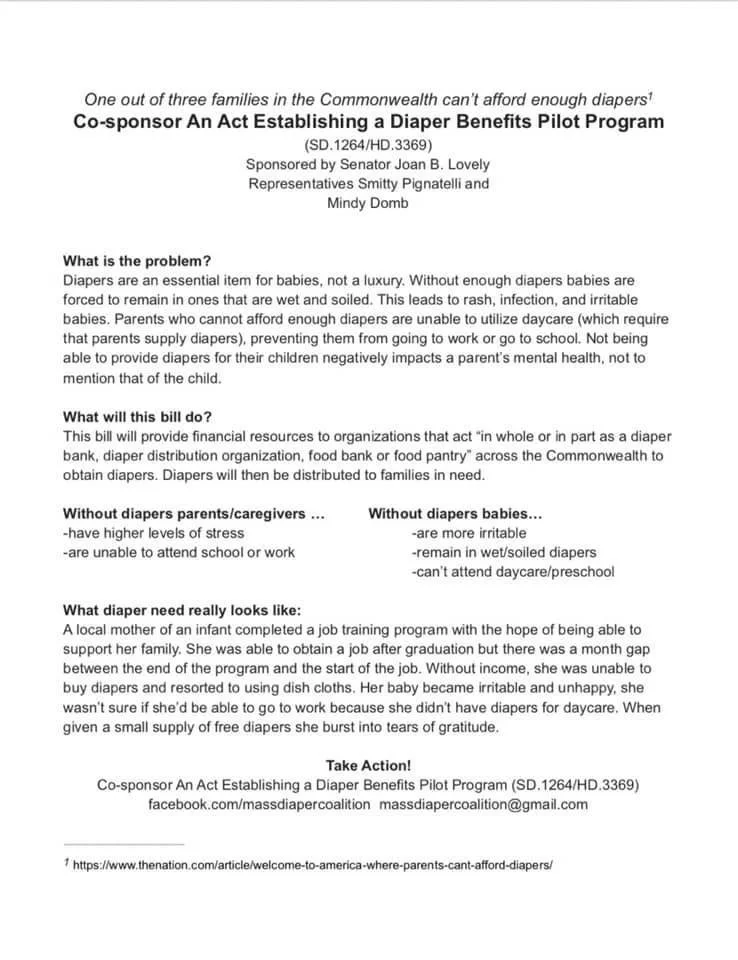Read: Massachusetts Bill HD.3732: An Act to encourage employer supported childcare
Members of the Massachusetts House of Representatives Alice Hanlon Peisch (14th Norfolk) and Sally P. Kerans (13th Essex) recently sponsored a Bill HD.3732: An Act to encourage employer supported childcare.
You can read the entire text here: https://malegislature.gov/Bills/193/HD3732?eType=EmailBlastContent&eId=78962bd7-2212-43ce-ab3e-17f090a41eea
And here is just section 1 below:
“SECTION 1. Section 2IIIII of Chapter 29 of the General Laws is hereby amended by striking the section in its entirety and inserting in place thereof the following section:
Section 2IIIII. There shall be an Early Education and Care Public-Private Partnership Trust Fund. (a) The fund shall be administered by the commissioner of early education and care, in partnership with the secretary of housing and economic development and secretary of labor and workforce development, for the purpose of helping employers offer or expand child care options as a benefit to their employees. (b) There shall be credited to the fund: (i) revenue from appropriations or other money authorized by the general court and specifically designated to be credited to the fund; (ii) interest earned on such revenues; and (iii) funds from public and private sources, including, but not limited to, gifts, grants and donations, to support state, philanthropic and private partnership efforts supporting Massachusetts employer-childcare provider partnerships; provided, grants are made to qualified Massachusetts employers; provided, no more than 50% of project costs shall come from privately raised or investment dollars and no more than 50% of project costs shall come from public sources; provided further, that participating employers must have a minimum of 75 employees, or a combined minimum of 75 employees within a consortium; and provided further, that amounts credited to the fund that are unexpended at the end of a fiscal year shall not revert to the General Fund. (c) Amounts credited to the fund may be expended, without further appropriation, by the commissioner of early education and care for the following purposes: (i) for local infrastructure investments to build or expand child care capacity; (ii) to support arrangements between employers and child care facilities to expand and reserve child care slots, including but not limited to grants to support projects that increase licensed or operational child care slots, add slots to meet new time/day, requirements of employees, or fill currently licensed (but unfilled) slots for the benefit of employees; and (iii) for other priorities as determined by the commissioner of early education and care; provided further, that no less than 1% of the appropriation provided herewith shall be used to support the administration, marketing, and communicating of the trust fund to the employer community. (d) Amounts received from private sources shall be approved by the commissioner of early education and care and subject to review before being deposited in the fund to ensure that pledged funds are not accompanied by conditions, explicit or implicit, on their implementation. The review shall be made publicly available. (e) Annually, not later than October 1, the secretary of labor and workforce development and the commissioner of early education and care shall report to the clerks of the house of representatives and senate, the house and senate committees on ways and means, the joint committee on labor and workforce development, and the joint committee on education, on the fund’s activity. The report shall include, but shall not be limited to: (i) the source and amount of funds received; (ii) the amounts distributed and the purpose of expenditures from the fund, including, but not limited to, funds expended to participating employers and early education and care providers; (iii) any grants provided to participating employers and early education and care programs, philanthropic organizations or other stakeholder organizations; and (iv) anticipated revenue and expenditure projections for the next year.”





